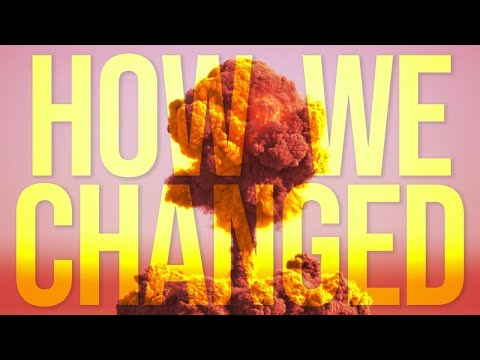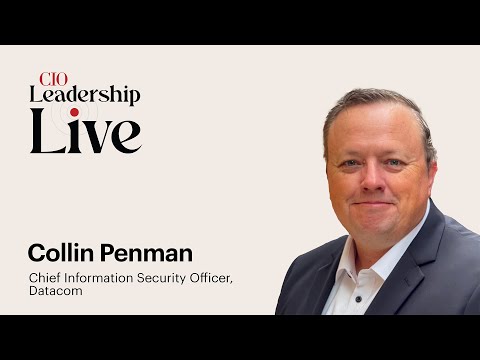How The Atom Bomb Changed How We Think

there is a bright flash brighter than the sun brighter than anything you've ever seen for if this country is ever subjected to an enemy attack what i'm going to show you now might someday save your life at exactly 15 minutes past eight in the morning on august 6 1945 at the moment when the atomic bomb flashed above hiroshima mr chico sasaki a clerk in the personnel department of the east asia tin works had just sat down at her place in the plant office and was turning her head to speak to the girl at the next desk this is how the new yorker journalist john hersey began his 1946 account of the bombing of hiroshima it follows the lives of six survivors describing how by chance they'd managed to avoid being one of the one hundred thousand that perished in the world's first nuclear attack at a time when much of the writing was technical philosophical or political focusing on foreign relations and the war percy did something that led to the essay becoming a classic it's simply reported we take it for granted today but when those first nuclear bombs were dropped on hiroshima and nagasaki in 1945 it had such a far-reaching global effect that some writers described the result as being a new nuclear consciousness the new york times wrote two days after that the bomb had caused and quote explosion in men's minds as shattering as the obliteration of hiroshima the novelist mary mccarthy wrote that to write about the bomb in its measurable and quantifiable destruction was to miss the point it was in the moral world that the bomb had exploded and during a sermon in new york one minister told his congregation that before us on the stage of history is a panorama of the soul i started researching this topic in response to this president putin has ordered russia's strategic nuclear forces to be placed on high alert top officials of leading nato countries are making aggressive statements about our country therefore i'm ordering the minister of defense and the chief of the general staff to put the strategic nuclear forces on special alert and the first things i wanted to look at were the obvious things russia's nuclear capabilities the idea of nuclear deterrence the literature behind cold war atomic brinksmanship this is what comes up first in all the research when you start looking at these obvious things but it's impossible even when reading serious scholars to not come away with a sense of absurdity of madness of there being no logical rational takes what came to be known as mad m-a-d mutually assured destruction is aptly named of course for good reason what i quickly became interested in instead was how much nuclear thinking has affected us culturally psychologically philosophically in our very psyches and sensibilities in many ways it brought madness to the forefront of our thinking you need to know about fallout what it is how to detect it and what to do to protect yourself against it in fact as the new boston review rate in 1981 quote contemporary culture grows in a dark place beneath the shadow of the nuclear threat so do we really have a nuclear consciousness if so how specifically did it develop what shapes did it take how did it change us i'll look at some of the surprising consequences of the discovery of nuclear power how it changed our ideas about fear and rationalism about world government how it changed literature and cinema and comics and religion science and even our idea of progress itself the dropping of that first bomb coincided with the end of an old world an old mentality that had persisted throughout the victorian era up until the two world wars those wars the bomb new technologies new media new international system split the world asunder old assumptions would no longer hold one thing that was new was this concept of one entire world threatened by one single device in an odd way the bomb united the world through and under this one single shared experience in fact one chapter of a very influential book written in 1945 the atomic age opens was titled the whole world gasped this idea of a whole world united by one feeling was a new phenomenon never before had an event touched the psyches of people everywhere no one was safe from [Music] for just it dance to let my blue heart pretend i'm just a fool and i can't get over you [Music] one 1946 survey by the social science research council found that 98 of americans knew about the bomb quote even the most isolated every newspaper and magazine discussed it every radio show and increasingly a new medium television too for many when the war ended the celebratory atmosphere in america and europe quickly gave way to the realization that the same weapon that had been used to end the war could at some point be used against them as well norman cousin wrote in his influential modern man is obsolete that the bomb produced quote a primitive fear the fear of the unknown the fear of forces man can neither channel nor comprehend this fear is not new in its classical form it's the fear of irrational death but overnight it's become intensified magnified it's burst out of the subconscious and into the conscious filling the mind with primordial apprehensions the most well recognized voice on the radio cbs's edward murray said that seldom if ever has a war ended leaving the victors with such a sense of uncertainty and fear with such a realization that the future is obscure and that survival is not assured time magazine called it a grimly pyrrhic victory and the anthropologist robert redfield wrote that the fear psychosis was quite a nightmare in the minds of men one radio production quickly made use of the sound of a geiger counter the mushroom cloud quickly became a recognizable symbol psychological studies were undertaken to reduce fear in the army and a 1956 animation called a short vision about what a nuclear attack might look like terrified children when it was aired on the ed sullivan show in america many scientists including the father of the bomb robert oppenheimer who became one of the us government's biggest critics thought that the fear was not only necessary but should be used pragmatically in 1947 oppenheimer was sent a letter by his colleague francis vivian drake that read i think that we have both agreed that a sense of fear is probably necessary to break public apathy christian commentator bernard eddings bell agreed writing that hitler was able to change the attitude of the german people but he was able to do it only by ruthless propaganda what we need for our purpose now is slogans shibboleths comic strips motion pictures centering around glittering stars and crooners the last thing we can depend upon is an appeal to common sense but the problem was so vast so seemingly insurmountable that apathy soon set in author john w campbell jr wrote in the atomic story in 1947 that human psychology is such that it is completely impossible to scare people collectively for any length of time novelists poets and artists all had the same problem they seemed paralyzed unsure of how to approach such an intimidating threat one linguist asked is it possible that in spite of our vast and ever-growing vocabulary we have finally created an object that transcends all possible description the best-selling novels of the immediate post-war period barely mentioned the bomb so the public turned elsewhere for guidance to the scientists [Music] scientists were propelled to stardom in the post-war period developments in medicine transport technology and weapons had proven that colossal innovative projects that were impossible to imagine a few decades before could succeed if business and government committed to big investment redfield wrote in 45 that the prestige of the physical scientist as the creator of these marvels was never higher what a physical scientist says on almost any subject is thought more important than what anybody else says president truman wrote that the events of the past few years are both proof and prophecy of what science can do the development of atomic energy is a clear-cut indication of what can be accomplished by our universities industry and government working together vast scientific fields remain to be conquered in the same way one scientist working on the bomb wrote that suddenly physicists were exhibited as lions at washington tea parties another leo zillard wrote that i did not foresee that scientists would be crowding into washington to see congressmen and senators that they would be interviewed photographed made into movie characters that they would feel impelled to write and talk on subjects other than their own and generally speaking to make a circus of themselves one group of scientists decided to use their new found prestige to start a journal the bulletin of the atomic scientists it was important they thought to inform the public on recent developments in accessible layman's terms the magazine was a success featuring the now famous doomsday clock ticking towards nuclear apocalypse but while using that widespread fear many scientists were also optimistic they hoped that the threat might lead to the development of a necessary united world government raymond graham swing was an influential broadcaster at abc he said that internationally i was sure the bomb meant world government for that would be the only way to abolish war which had to be abolished if civilization were to endure albert einstein influentially agreed and oppenheimer also called for quite radical and profound changes in the politics of the world the nation magazines frieda kirchway warned that we face a choice between one world or none and the normally conservative reader's digest agreed writing that world government has now become a hard-boiled practical and urgent necessity supporters organized the conference in october 1945 and placed an advert in the new york times calling for a world federal government and 54 of americans favored turning the un into a world government but the idea quickly lost momentum government official sumner wells protested that i cannot imagine that the soviet union would participate in a world government upon any other basis than of a world union of soviet socialist republics with a capital located in moscow and this decline of optimism this spread of fear this realization of the destruction that could be caused quickly led to a questioning of the idea of progress altogether what did progress even mean if it could all be destroyed by the press of a button what did religion mean in this new world the enola gays mission starts from tinian in the mariana the crew has had their final briefing on weather and airspeed only yesterday they have been told of the true power of the weapon there to carry in his book by the bomb's early light paul boyer reports that the atomic age was opened with a prayer a chaplain had blessed the crew of the enela gay the plane that dropped the first bomb and president truman remarked that we thank god that it's come to us instead of our enemies and we pray that he may guide us to use it in his ways and for his purposes a new york journal told its readers that divine providence has made the united states the custodian of the secret of atomic energy as a weapon of war and physicist arthur compton had said that atomic power is ours and who can deny that it was god's will that we should have it many were troubled by this outlook but it revealed and put into sharp focus some of the assumptions of liberalism and the enlightenment it had developed out of that progress was inevitable that science could liberate humans that the direction of history and technology led onwards and upwards inevitably in a single ever improving path the bomb led many to rethink this view the editor of catholic world wrote in 1945 that the use of the bomb revealed the breakdown of the universal and everlasting moral law edward long jr saw that the bomb meant that all achievement can be quickly lost and that life does not inevitably grow better and historian lewis mumford called the bomb collective suicide so the idea of inevitability was raised over and over commenting on the horrors of auschwitz and the destruction of the war more broadly philosopher theodore aderno said that to write poetry would be barbaric he said mankind instead of entering into a truly human condition is sinking into a new kind of barbarism like a new frankenstein many saw science as two-headed a contradiction something that could ironically destroy itself dwight macdonald wrote that atomic fission is something in which good and evil are so closely intertwined that it's hard to see how the good can be extracted and the evil thrown away atomic weapons were making humans look small precarious insignificant even the dominant philosophy of enlightenment liberalism had placed individuals at the center of the universe the rational person crafting his or her world according to their own desires their own ideas their own goals but the bomb and the idea of the bomb and the destruction and the path of the war more broadly had shown the individual to be less in control of the world than they thought as part of a machine so large and so inexorable that events seemed almost too momentous to grasp over 130 000 individuals worked on the manhattan project only a few of them even know what they were contributing to let alone the deaths that it would lead to and if this was the case if so many could contribute to something they had no purposive knowledge of if so many could be led through the war to become so destructive so genocidal did we not need a different model of history one that doesn't assume that history is crafted and directed by rational leaders pointing the way forward philosopher karl popper thought so he criticized thinkers like hegel marx and mill who saw history as one inevitable story the product of quote specific historical laws which can be discovered and upon which predication regarding the future of mankind can be based he argued that it led to the inheritors of technology and dominance thinking that they'd been selected as the instrument of destiny ultimately to inherit the earth it was this way of thinking that often justified things like eugenics the survival of the fittest social darwinism the things that had led to world war ii in the first place the idea that the strongest were inevitably the most dominant and that was just a rational result of the right of the strong popper and others and the later post-modern thinkers that grew up in a nuclear age searched for ways to theorize alternatives open histories different trajectories the bomb contributed to the popularity of critical theory and postmodernism of lines of questioning that asked simply what if things had developed differently was there another path while mainstream literature in the immediate post-war period was slow to deal with the philosophical implications of the bomb science fiction took up the mantle authors like philip k dick and isaac asimov wrote about the bomb in different ways and in many ways the bomb and technology more broadly made science fiction a respectable genre asimov wrote that science fiction was salvaged into respectability as the bomb fell science fiction was a marginal genre not taken that seriously by academics and literary people but within a decade science fiction authors suddenly found themselves being invited to government talks and offered jobs at universities h.g wells had famously predicted an atomic weapon in 1914's the world set free he'd imagined a uranium bomb that would continually explode indefinitely and science fiction writer ray bradley wrote in 1945 that i saw the headline brought on the bus by a stranger and thought yes of course so it's here i knew it would come for i had read about it and thought about it for years in fiction and in cinema many quickly realized that the idea of the bomb and its consequences and metaphors like alien invasions zombie apocalypses and plagues sweeping across the world were the perfect vessel for discussing social and political issues while entertaining readers and viewers at the same time author robert a heinlein wrote that science fiction has moved inexorably towards the center of american culture shaping our imagination the 1950s became a golden age of science fiction and japan's godzilla was released in 1954 using the idea of a nuclear monster as a metaphor for atomic fear and destruction but where japan saw monsters american pop culture quickly turned radioactive fear into the optimism of superheroes the hulk x-men spider-man and fantastic four all begin with radioactive transformations or mutations instead of telling stories of destruction they turned tropes of radioactivity into mythical fairy tales of american heroes protecting the world by 1966 star trek could hit our screens by 68 2001 a space odyssey and by 77 star wars would change cinema forever gradually mainstream cinema and literature caught up with the early science fiction writers 1959's on the beach based on the 57 novel of the same name focused on a group of people in australia dealing with the knowledge that they're waiting for nuclear fallout to reach them and coming to terms with their impending deaths 1964's dr strangelove explored the absurdity of the bureaucracy the politics and the arbitrary events and decisions and personal matters that could set off a chain reaction leading to a nuclear attack a typically post-modern strange love is full of missteps failed attempts to stop the bomb absurd and random moments that derail the logic of keeping nuclear weapons as deterrents 1964's failsafe imagines what happens when a nuclear bomb is dropped on moscow by accident in the end the president bombs new york himself as a sign of goodwill to prevent soviet retaliation these films highlight a central realization of nuclear power that in the same way that a single death could be the result of an accident the human race could now be wiped out by accident the films dealt with the absurdity of nuclear weapons and provided a powerful critique of the military industrial complex and the idea of nuclear holocaust provided the material in film literature and science fiction to imagine new social contracts ground zeroes from which authors could discuss what human psychology would be like in a post-apocalyptic world or without the current political systems we lived under and what the implications of this would be for real life the old social contract theorists of the enlightenment theorized how governments and states and nations began these new writers and filmmakers imagined instead how they'd end so in some ways while the bomb led to a widespread fear and a questioning of modernity it also ironically created a space for critique a new way to imagine different worlds the absurdity of the foreign policy doctrine mad that mutually assured destruction would prevent either side from attacking first and the idea that one person one accident one slip up could wipe out the entire human race contributed to the feeling of absurdity seen in films like strange love many novels like joseph heller's catch-22 played with this irrationalism and by the 60s these contradictions the idea of openness and different worlds and a disaffection with both america and the ussr contributed to the emergence of many philosophical and artistic ideas that would later become labelled as postmodern the discontent as michael miller has argued contributed to the feeling of disenfranchisement on student campuses during the 60s many students and critics saw the figure of the establishment liberal bureaucrat in charge of a world that could lead to the cuban missile crisis as frankly ridiculous miller wrote that they feel that world is somehow implicated if only by default in the heritage of nightmares that compose recent history auschwitz hiroshima the cold war mccarthy but that space the marches for nuclear disarmament the films the focus the shift in philosophy has largely been forgotten and in most ways the idea of nuclear war made us collective pessimists how could it not in the cultural logical literary political and psychological landscapes it produced it was easier to imagine the end of the world than the possibility of utopia but like those who dreamed that the bomb might lead to global unity it's important to remember that ironically the logic of man does create a space of shared interests no country desires its own destruction and the nuclear threat has created some channels to discuss and commit to disarmament in the interest of our shared humanity arms control treaties require each side to be transparent to share numbers and information on facilities to commit to inspections global nuclear stockpiles are so exhaustive that if ninety percent were destroyed there would still be enough to end all life on earth so maybe this moment this crisis this catastrophe is the time to renew our demands to political parties to promise to pursue arms agreements and reduce those stockpiles maybe we should remember that this is still one of if not the leading threat to our species survival ultimately we could remember that the bomb did do a lot for pacifism's cause aj must made the most influential early case in 1947 in not by might he said we should ponder the meaning of the bomb steadfastly and relentlessly until it has burned its way into our consciousness and in doing so has burned away all illusions about war thank you as always for watching and a huge thanks of course as always to my patreons without which this just wouldn't be possible so if you want to see scripts if you want to chat in the discord server if you want your name in the credits but most of all if you just want to help support make this content then click the link in the description below if not you can like you can share you can leave a comment all those things that help the algorithm thank you so much and i'll see you next time [Music] you
2022-05-12 20:55


